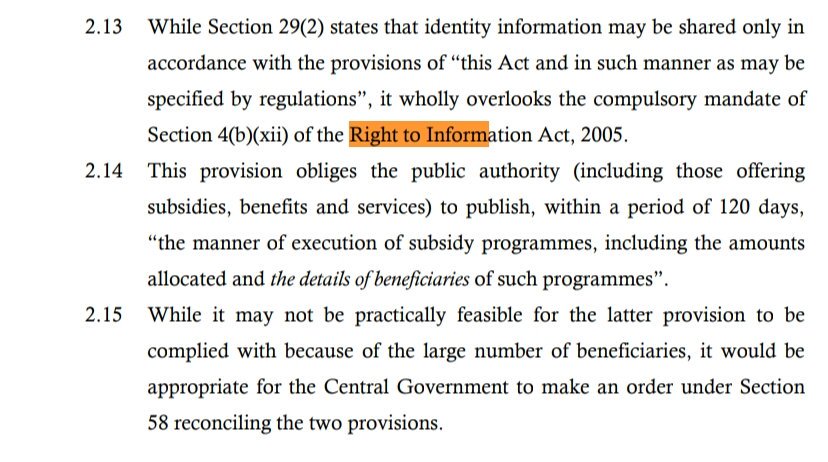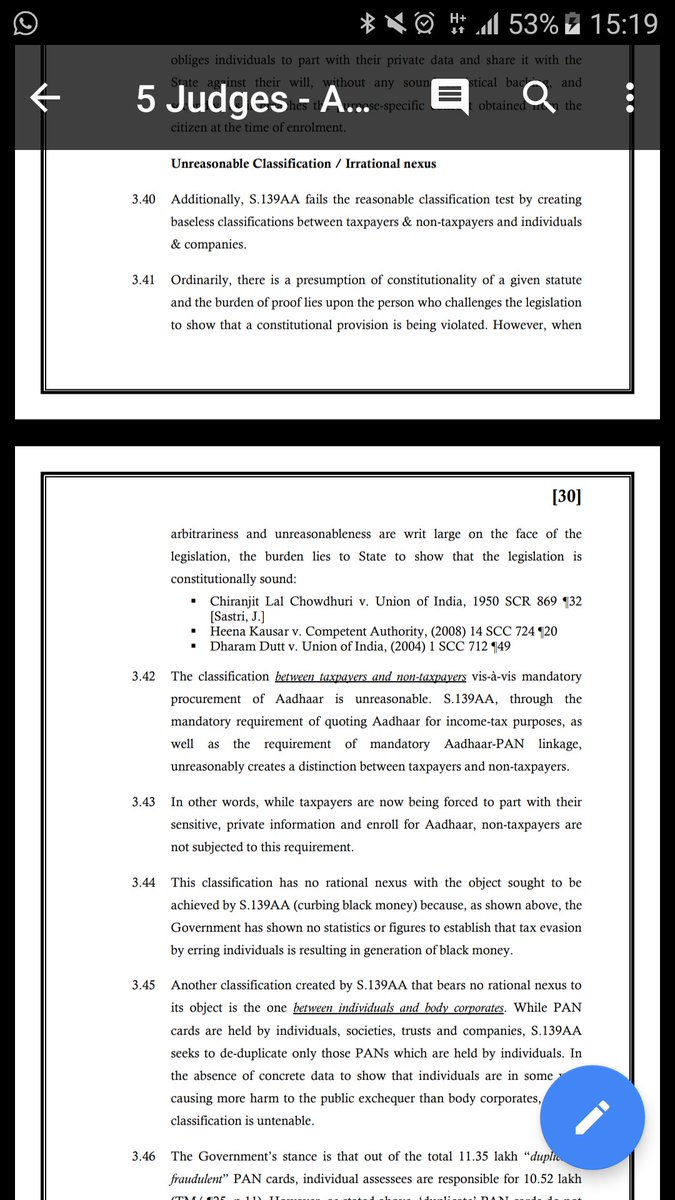GSank concurs and says there is no mass surveillance because of Aadhaar. The privacy concerns are valid. But the Act passes all the tests laid down, he states.
GSank says answer is in 266 (3) of the Constitution. Says it has to be in accorance with law. Government will have to discharge...
GSank: it is only a negative right in the sense, you can file a 32 petition asking Govt to not interfere with your right to nutrition...but cannot file a 32 petition asking to be fed.
DYC J: There is also a positive aspect in the sense, ....
GSank agrees.
GSank: Security is an object of the Aadhaar Act. That and legal safeguards and creation of offences are good balancing factors for proportionality. However challenges Section 47 which falls foul of natural justice.
Rakesh Dwivedi clarifies he has only been testing.
Bench rises for lunch.

Among other points that he quickly runs through, he says the data is with the government and government has to discharge the burden of reasonableness by showing that data.

Cites how banking correspondents have empowered the poor. And empowered women and have helped migrant labour.
NKK says he only wants Section 57 to be voluntary by consensus.
DYC j asks why they need Aadhaar's central authentication.
NKK: We want to make sure we are heard before you make observations on 57.
NKK: the central info in aadhaar is very minimal.
Cites balancing approach again. All 21 rights have to be enforced.
In this case it is not balancing privacy and other rights...but interference with privacy with all other rights.
Bench rises for the day.
Hearing resumes on Wednesday, 2nd May. A-G will finish submissions that day including
Money bill and Lokniti order. (Me thinks: damage control from yesterday).

